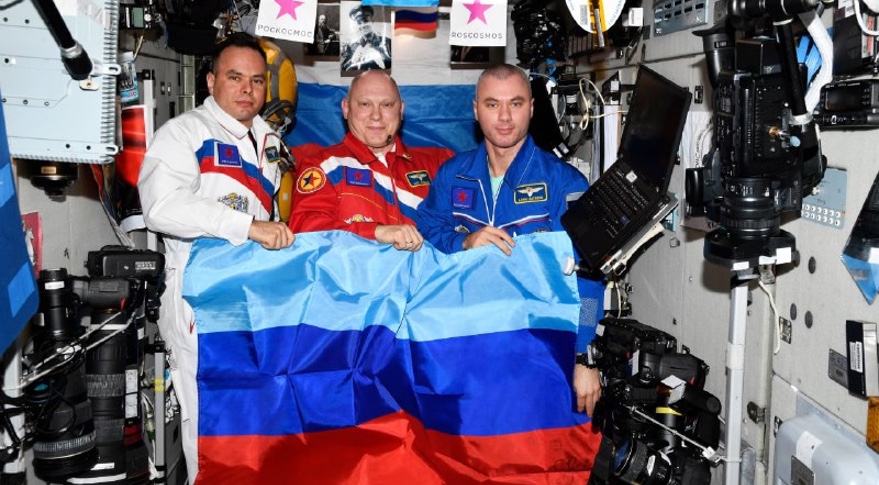WASHINGTON — NASA strongly criticized Russia for using the International Space Station to promote its invasion of Ukraine, a break from the agency’s approach of emphasizing ongoing cooperation despite the war.
In a statement late July 7, NASA said it “strongly rebukes” Russia for political activity on the station related to Russia’s ongoing invasion of Ukraine. The brief statement did not specify what incident prompted the statement.
“NASA strongly rebukes Russia using the International Space Station for political purposes to support its war against Ukraine, which is fundamentally inconsistent with the station’s primary function among the 15 international participating countries to advance science and develop technology for peaceful purposes,” the agency said in a statement emailed to reporters.
The statement appears to be in response to images released by the Russian space agency Roscosmos July 4 that showed the three Russian cosmonauts on the station — Sergey Korsakov, Oleg Artemyev and Denis Matveev — holding flags associated with the self-proclaimed Luhansk People’s Republic and Donetsk People’s Republic. These are regions of eastern Ukraine occupied by Russian forces but whose independence is recognized by only Russia and Syria.
The flags were displayed to mark the Russian occupation of Lysychansk, the last city in Luhansk to fall to Russian forces. In the Roscosmos statement posted on the Telegram social media network, the agency said it and the cosmonauts on the station congratulated the Luhansk People’s Republic government on the capture of the city.
The NASA statement stands in contrast to its past efforts to publicly minimize the effect of the war on the ISS partnership. NASA leadership had in the past noted a long-running relationship with Russia and the former Soviet Union in spaceflight that dated back to the Cold War.
“On the station are Russian cosmonauts and American astronauts, and they are all very professional. The relationship between the mission control in Houston and in Moscow is very professional,” NASA Administrator Bill Nelson said June 15 during a joint press conference with his European Space Agency counterpart, Josef Aschbacher, when asked about relations with Russia.
“Despite the tragedies that are occurring in Ukraine by President Putin, the fact is that the international partnership is solid when it comes to the civilian space program,” he said.
It’s unclear if this incident will have any lasting effect on ISS cooperation. NASA and Roscosmos have yet to finalize a seat barter agreement to allow Russian cosmonauts to fly on commercial crew spacecraft and American astronauts to go on Soyuz spacecraft. In a separate Telegram post July 6, Dmitry Rogozin, head of Roscosmos, said he expected a final version of the agreement in one to two weeks.
A European Space Agency astronaut on the station, Samantha Cristoforetti, is scheduled to perform a spacewalk from the station’s Russian segment July 21 with Artemyev. The two will work on a European robotic arm on the station’s Nauka module.
